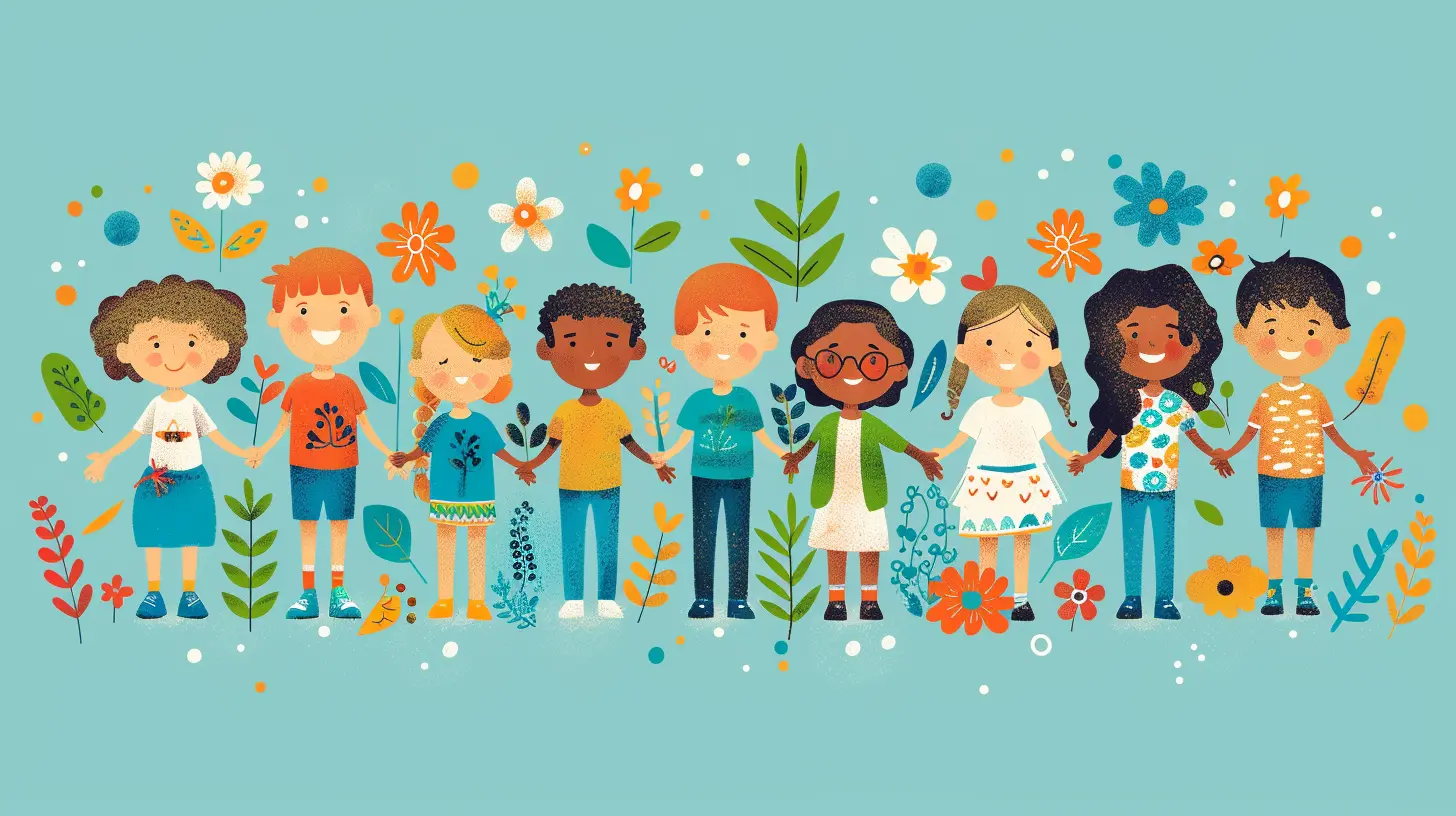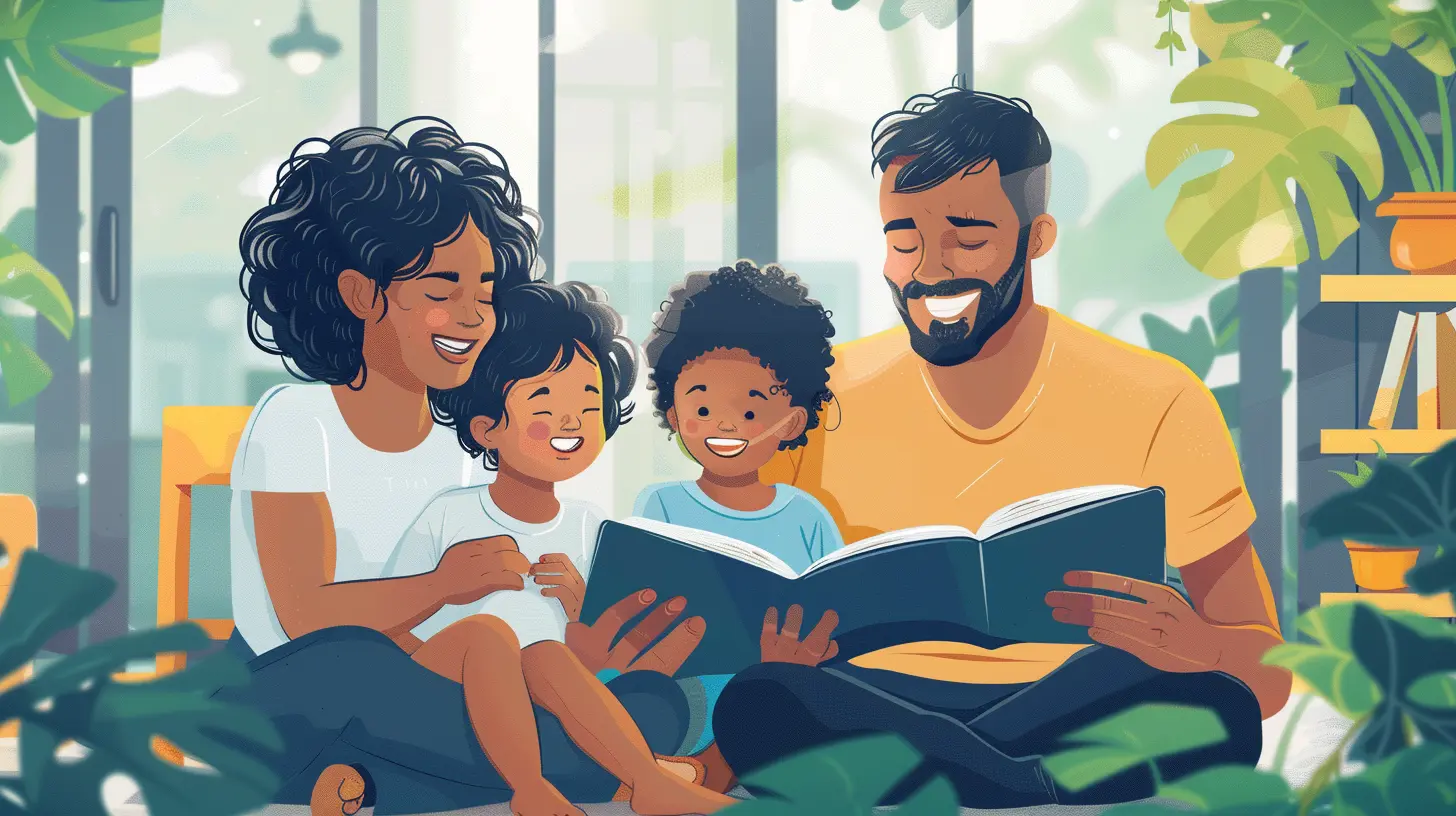Collaborative Learning: Engaging Parents and Children Together
30 October 2025
Let’s be real for a second—learning isn’t just about textbooks, homework, and report cards. It’s about discovery, bonding, and those "aha!" moments that sometimes happen in the middle of baking cookies or sorting socks. Yep, education can pop up in the most unexpected places. And guess what? There's a name for it—collaborative learning.
Now, before your brain starts throwing words like "group projects" and "frustrating science fair catastrophes" at you, let’s clear something up. Collaborative learning isn’t just about cramming students into groups and crossing fingers. When done right, especially when parents and children learn together, it's nothing short of magical.
So, grab your coffee (or juice box, we don’t judge), and let’s dive in.
What Is Collaborative Learning, Anyway?
Imagine a group of kids building a LEGO spaceship—and a parent is showing them how gears work while another kid explains how gravity might affect it in space. That’s collaborative learning in action: people learning with and from each other.It’s not a dull lecture. It’s not solitary silent reading (though we love a good book moment, too). Collaborative learning is an interactive, hands-on, minds-together approach that thrives on shared goals. It’s about teamwork, curiosity, and a side of accidental laughter.
When parents get involved in this style of learning, the results can be pretty fantastic.
Why Should Parents and Children Learn Together?
Let’s flip the script here. Usually, it’s the kid coming home with homework, and the parent pretending to remember 7th-grade algebra. But when parents and children embark on a shared learning journey, a whole world of benefits opens up.1. Deepens Family Bonds
Think about it—it’s hard not to feel close when you’ve just survived a messy science experiment involving vinegar and baking soda. Learning together gives families shared experiences, inside jokes, and memories worth holding onto. Plus, nothing says bonding like struggling to assemble IKEA furniture while also doing a geometry lesson. (Those instructions might as well be hieroglyphics.)2. Boosts Motivation for Kids
Kids are little sponges—and when they see their parents excited about learning, they soak that enthusiasm right up. It turns off the “ugh, schoolwork again?” mindset and flips it into “Hey, Mom’s sketching with me—maybe this IS cool!”3. Builds Life Skills for Everyone
Let’s face it—learning together isn’t just about acing a spelling test. It’s about problem-solving, communication, resilience, and a sprinkle of humor. When parents model these skills, kids absorb them faster than cookies disappear at snack time.
Breaking the Myth: You Don’t Have To Be a Teacher!
Wait, wait, wait. You might be thinking, “But I’m not an educator! I barely passed high school chemistry!” Deep breath. It’s okay.You don’t need a fancy degree to be your child’s collaborator.
Think of yourself not as the teacher, but as a learning sidekick. Like Robin to Batman, or Chewbacca to Han Solo—you’re there to support, cheer on, and occasionally laugh when things go hilariously off course.
Creative Ways to Make Collaborative Learning Fun
Alright, let’s get to the juicy part—how do we actually do collaborative learning at home without anyone falling asleep or running for the hills?Here are some tried-and-true ideas that combine education with a splash of fun:
1. Family Book Club (With Snacks, Of Course)
Pick a book that’s suitable for all ages—maybe a classic adventure or a feel-good modern tale. Read a few chapters together each week and then chat about it over chips or cookies. Let everyone share their thoughts. Was the hero brave or bonkers? What would YOU have done differently?Bonus points if you act out scenes. Yes, even if Dad insists on using funny accents.
2. Kitchen Chemistry
Baking is just science with delicious results, right? Let younger kids measure ingredients (hello math skills), older ones decode the recipe, and parents explain what yeast actually does (or Google it together). You’ll get treats and a science lesson rolled into one.Just be prepared for flour in unexpected places.
3. History Through Storytelling
Instead of memorizing dates (yawn), bring history to life. Watch a historical movie together, discuss real-life heroes, or even dress up like people from different eras and make a short video. Think of it as TikTok meets the Renaissance.4. Build Something—Anything!
Construct a birdhouse, model solar system, or even a blanket fort with blueprints. Measuring, drawing, planning—it’s all learning. Plus, the final product might just become a new family pride.5. Game Night With an Educational Twist
No, not Monopoly (that ends in tears too often). Try games that involve strategy, vocabulary, math, or logic—Scrabble, Sudoku races, or even coding games on the computer. Just don’t forget the popcorn.Tech to the Rescue: Collaborative Learning Tools for Families
We’re living in a golden age of apps, platforms, and online resources that can transform your living room into a classroom (minus those old-school hard chairs).Here are a few worth checking out:
- Khan Academy – Free lessons in everything from art history to algebra.
- Duolingo – Learn a new language together with silly sentences and daily challenges.
- Prodigy – A math game kids actually want to play.
- Google Docs – Great for collaborative journaling or group storytelling.
Use tech as your ally—not your babysitter. Join in the fun and show that you’re just as eager to learn something new.
Let’s Talk About Challenges (Spoiler: They’re Normal)
Alright, let's not sugar-coat it. Collaborative learning can be a beautifully chaotic adventure. But sometimes, things get messy. Literally and figuratively."I Don't Have Time!"
Totally fair. But collaborative learning doesn’t require hours. Even 15 minutes a day can make a difference. Think quick puzzles at breakfast or a trivia question during dinner."My Kid Isn't Into It"
That’s okay. Start small. Pick topics they’re already crazy about—dinosaurs, space, unicorns wearing sunglasses. Show interest, join their world, and the rest will follow."We End Up Arguing"
Ah, the fine art of family debates. Here’s the trick—focus on collaboration, not correction. Let your child explain their thinking. Be the facilitator, not the fact-checker. And hey, if all else fails, take a snack break. Snacks heal many wounds.The Long-Term Wins: What Collaborative Learning Teaches Beyond the Books
So why go to all the trouble? Besides the laughs, the mess, and the memories?Because collaborative learning teaches stuff schools sometimes miss:
- Empathy – Understanding different perspectives isn't easy, but collaborative learning helps.
- Confidence – Kids feel seen and supported. That’s a huge deal.
- Resilience – When projects flop (and they do), that’s a learning moment, not a failure.
- Curiosity – The more they learn, the more they want to learn. It’s a beautiful spiral upward.
Let’s Wrap It Up With a Little Pep Talk
Education shouldn't be a solo journey. And it doesn’t have to be a battlefield either.When parents and kids learn together, something magical happens. The lines between teaching and learning blur. The roles flip. And instead of tug-of-war over homework, you get high-fives over robot builds and debates about black holes.
So, set aside the idea of “perfect” parenting, “proper” teaching, and “ideal” schedules. Instead, grab a puzzle, a book, or a curious question, and dive in together.
Because the best classrooms sometimes have no walls—they have kitchen counters, living room floors, and parents right there in the messy, joyful middle of it all.
all images in this post were generated using AI tools
Category:
Parent InvolvementAuthor:

Zoe McKay
Discussion
rate this article
1 comments
Nolan Middleton
This article beautifully highlights the importance of involving parents in collaborative learning. Engaging families not only enriches children's education but also strengthens community bonds. Thank you for sharing these valuable insights on fostering meaningful partnerships in learning!
November 8, 2025 at 1:51 PM

Zoe McKay
Thank you for your kind words! I'm glad you found the insights on parental involvement and community bonds valuable. Engaging families truly makes a difference in children's education.


